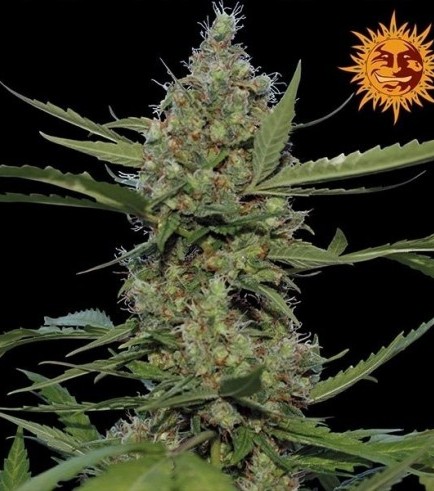Laughing Buddha
Laughing Buddha: Lift Your Spirits High
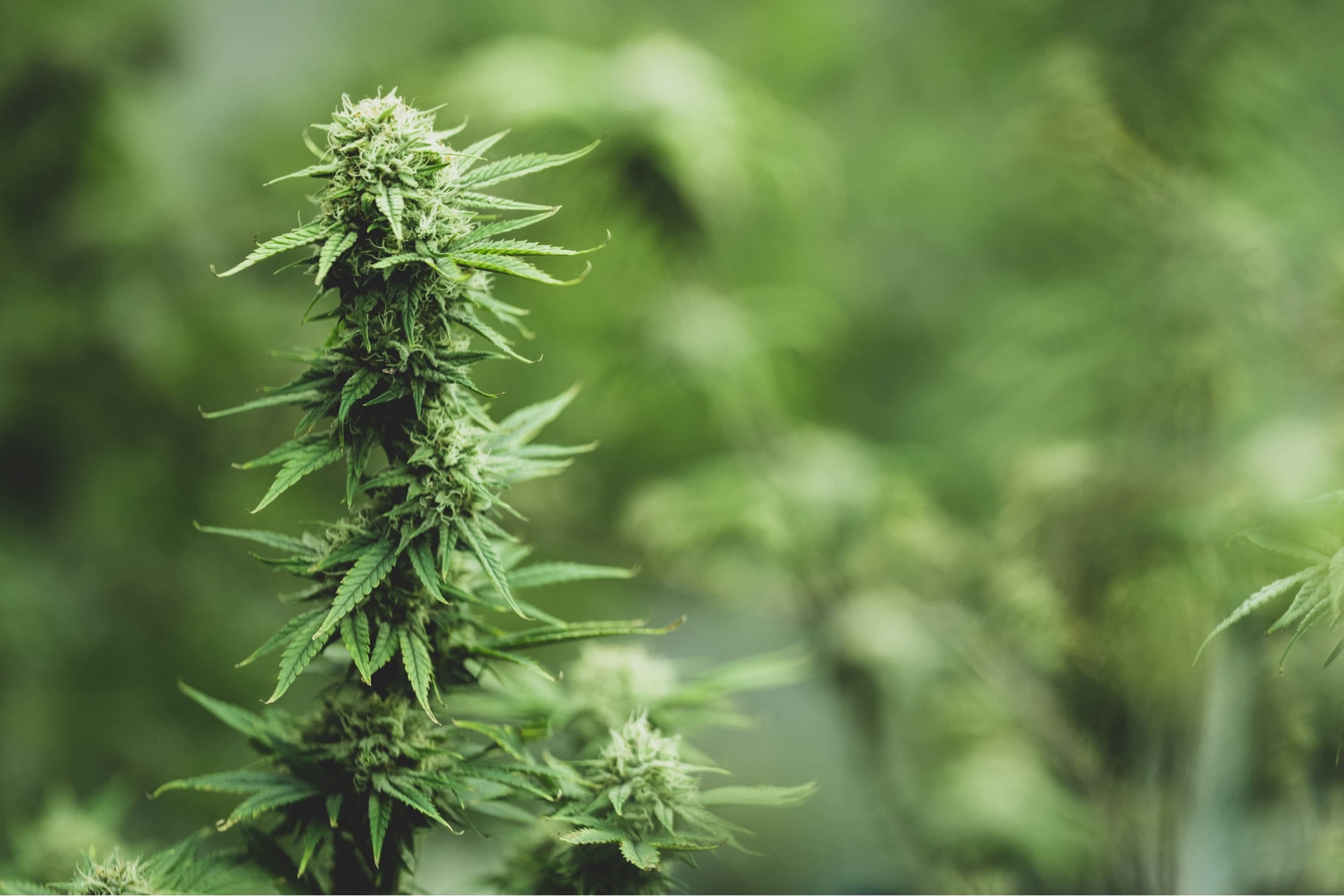
Laughing Buddha is a sativa-dominant hybrid that promises to put a smile on your face. Bred by Barney's Farm in the Netherlands from landrace genetics, this strain boasts uplifting effects, pungent old-school hash aromas, and vigorous growth traits. Keep reading to learn all there is to know about the Laughing Buddha strain.
Genetic Background of Laughing Buddha: Thai and Jamaican Ancestry
Laughing Buddha was created by Barney's Farm, a famed Dutch seed bank. The driving force behind Barney's Farm and the creator of Laughing Buddha is Derry, an old-school cannabis grower who spent the 1970s and 1980s travelling through Asia and the Middle East collecting landrace cannabis seeds. Derry eventually settled in the Himalayas where, along with a group of like-minded people, he began growing and crossing the seeds he'd collected. After 3 years in the mountains, Derry moved back to Holland and founded the Barney's Farm coffeeshop and seed bank to make his high-grade, natural cannabis cultivars available to everyone.
Laughing Buddha is one of Barney's Farm's best-selling varieties and combines genetics from Thai and Jamaican landrace strains.
Thai
Thai refers to any landrace cannabis strain from, you guessed it, Thailand. Landrace varieties from this area have spent many generations adapting to Thailand's unique climate, which is characterised by long, hot, and humid summers. Typical of strains native to the tropics, Thai cannabis strains are usually pure sativas with telltale sativa growth traits—imagine tall, reaching plants that produce wispy flowers with fruity, spicy, and earthy aromas. Thai cannabis is renowned for its potency, as well as its uplifting cerebral effect, and is beloved by cannabis breeders. In fact, Thai landraces have been used to create a long list of popular hybrid strains, including:
- Haze
- Blueberry
- Juicy Fruit
- Northern Lights
Jamaican
Jamaican refers to, wait for it… landrace weed from Jamaica. Supposedly introduced to the island from India in the 19th century, cannabis now grows all over the nation, both in the wild and in gardens tended by locals. In fact, cannabis plays a unique role in Jamaican society and is central to the Rastafari spiritual practice. Given the island's tropical climate, which is characterised by long, wet, and humid summers and dry, warm winters, the cannabis plants growing there tend to be tall and lanky, producing elongated, airy flowers. The aroma of Jamaican weed is often described as earthy and herbal, and the flowers are known to produce a soothing, balanced high. Jamaican landrace weed has also been used extensively by modern breeders and provides the genetic background for hybrids like:
- Amnesia Haze
- Lamb's Bread/Breath
Aroma and Flavour of Laughing Buddha: Rich and Fruity
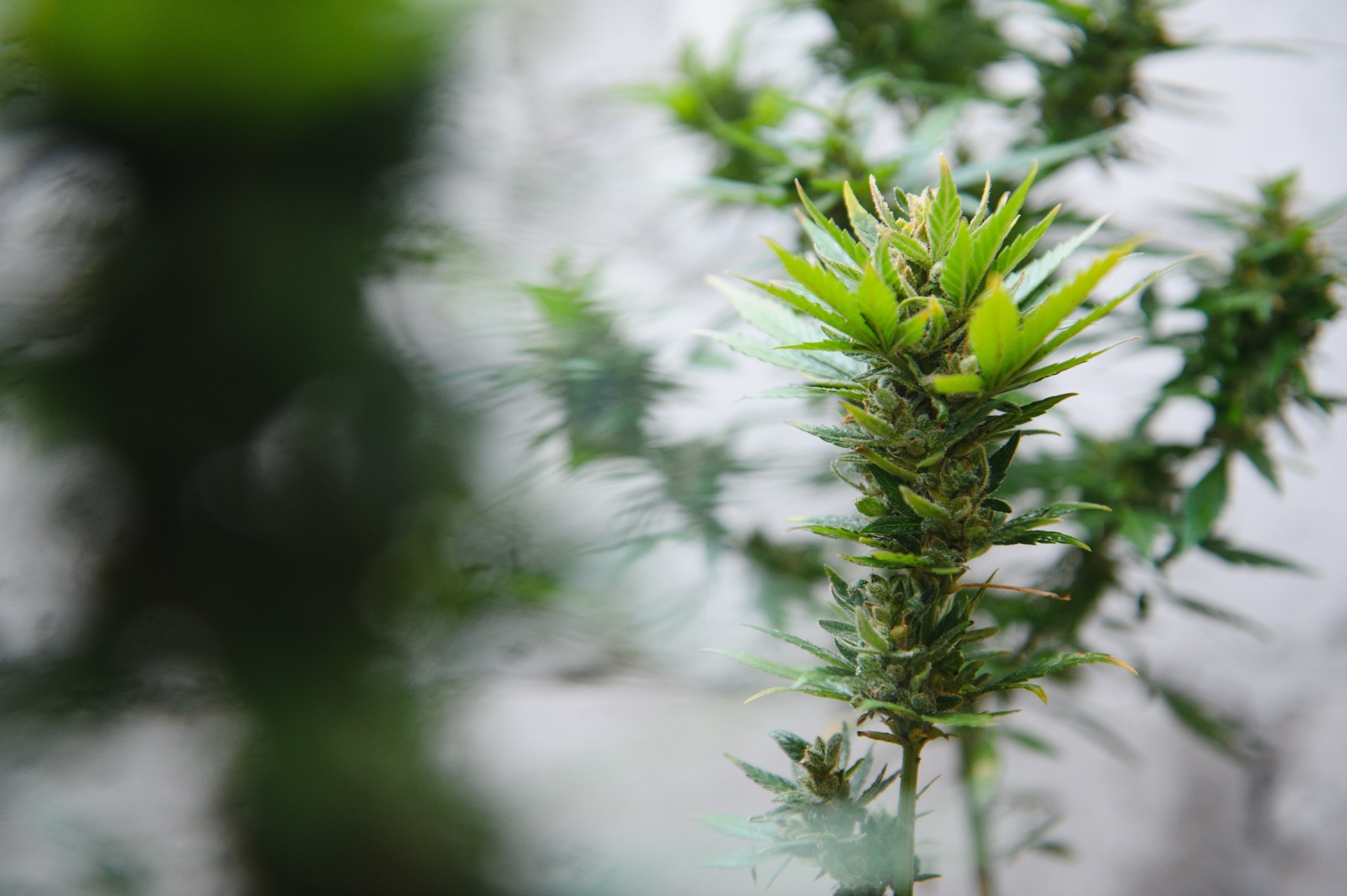
Laughing Buddha has a pungent aroma and a rich, full-bodied flavour. A well-cured batch of Laughing Buddha buds should smell sweet and fruity, with notable hints of citrus layered atop earthy undertones and a spicy, peppery kick. Its taste is similar, dominated by sweet fruit notes at first, followed by an earthy and spicy exhale. Some users also pick up on notes of ripe bell peppers, pineapple, as well as mint.
Some of the terpenes you might find dominating this strain include:
- Ocimene
- Limonene
- Myrcene
- Caryophyllene
- Pinene
Potency and Effects of Laughing Buddha
Laughing Buddha is a very potent cannabis strain. While Barney's Farm hasn't openly disclosed the THC levels of this variety, users report that it normally contains around 22% THC and some traces of other cannabinoids. Combined with its rich mix of terpenes, the cannabinoids in Laughing Buddha synergise to produce a creative, social, and euphoric high.
As its name suggests, Laughing Buddha will boost your mood almost immediately after your first toke. Soon after, you'll experience a rush of energy that'll make you want to do something creative or go on an outdoor adventure—even if it's just in your backyard. If you smoke this strain with friends, expect to find yourself laughing and chatting away as you rid yourself of social inhibitions. If you're alone, consider painting, drawing, or playing music—Laughing Buddha goes great with all kinds of creative activities.
Alternatively, Laughing Buddha also pairs well with light exercise, meditation, or similar spiritual reflection. If you're one for yoga, tai chi, or similar activities, consider exploring those fields while under Laughing Buddha's delightful spell.
Recreational Uses
Laughing Buddha gets a lot of praise from both experienced and newbie recreational smokers. Experienced users, for example, report enjoying this strain during the day as they work from home, chip away at household chores, or get creative. In fact, many veteran smokers report that laughing Buddha is one of those strains that takes them back to their first time getting high. Users with a lighter tolerance, on the other hand, might find themselves more taken by this strain's cerebral energy and might want to reserve Laughing Buddha for weekends or holidays when they don't have to worry about being productive and can fully immerse themselves in the strain's cerebral buzz.
Growing Laughing Buddha: Huge Yields After an Extended Bloom Phase
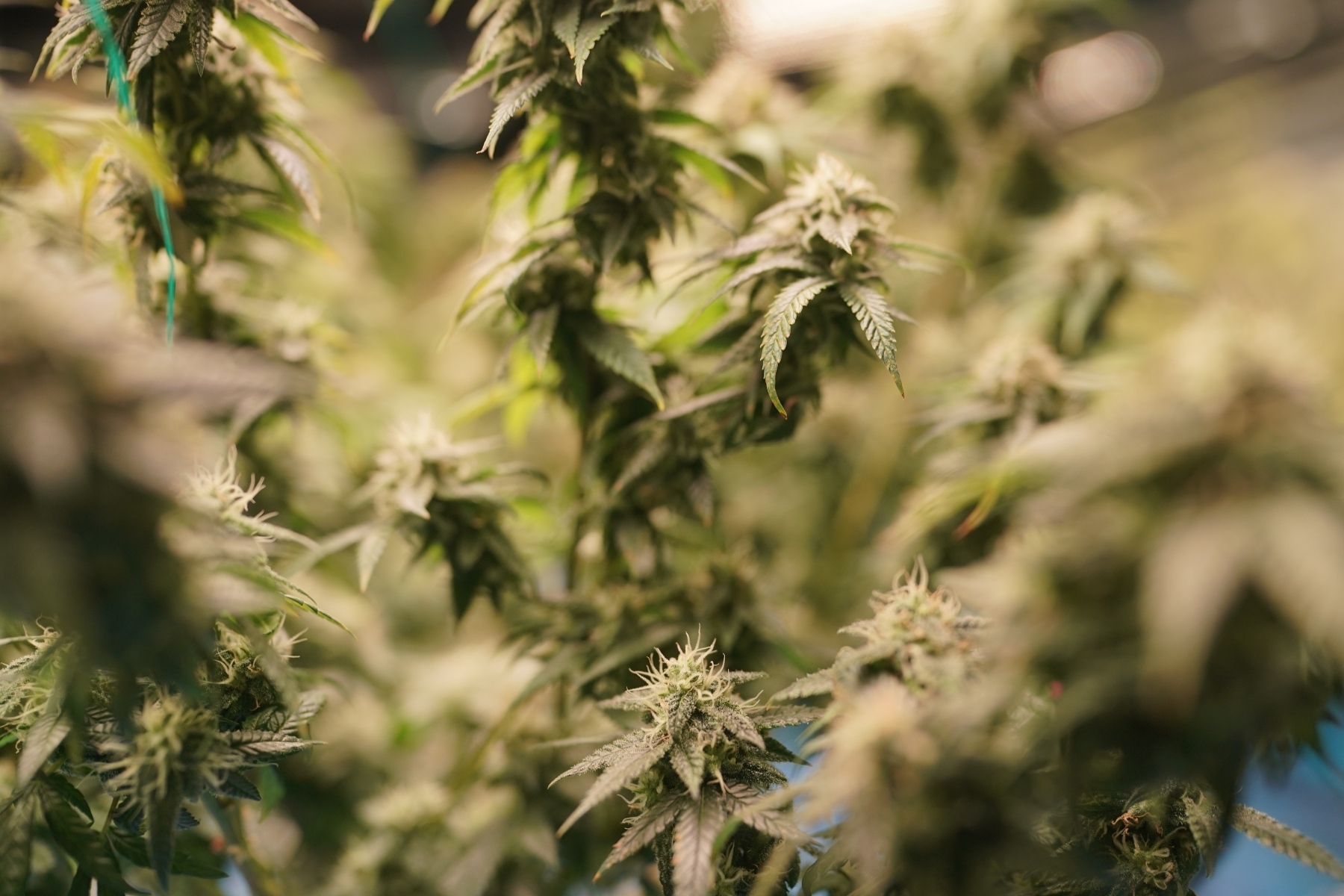
Laughing Buddha is readily available from Barney's Farm. The strain is 80% sativa dominant, vigorous, and fairly easy to grow. It produces beautiful plants that stay nice and compact during their veg phase, then stretch enormously during bloom. With the right amount of care, however, Laughing Buddha seems to produce great results both indoors and outdoors. According to Barney's Farm, Laughing Buddha takes around 11 weeks to flower and can produce up to 600g/m².
Indoor Growing Tips
Laughing Buddha can be grown indoors. However, its tendency to stretch during bloom can make it a little challenging for growers operating out of small tents or rooms. For the best results, we recommend vegging Laughing Buddha for only about 3 weeks or training plants heavily with a combination of low-stress and high-stress techniques. Topping, for example, can come in very handy when trying to tame stretchy sativas like this one. Laughing Buddha may also respond well to trimming and pruning, as well as side lighting to ensure its lower buds get enough illumination to develop properly.
Outdoor Growing Tips
Outdoor gardens with a lot of sunshine and space are ideal for growing tall sativas like Laughing Buddha. Given enough soil, these plants will grow into tall trees with long branches that become loaded with buds come harvest time. Again, training and trimming will help to promote even light penetration to all parts of these tall plants, as well as help to manage their size. In the Northern Hemisphere, Laughing Buddha plants are typically harvest-ready by the end of October/early November. In the south, this strain should be ready for harvest by late April/early May.
Should You Try Laughing Buddha?
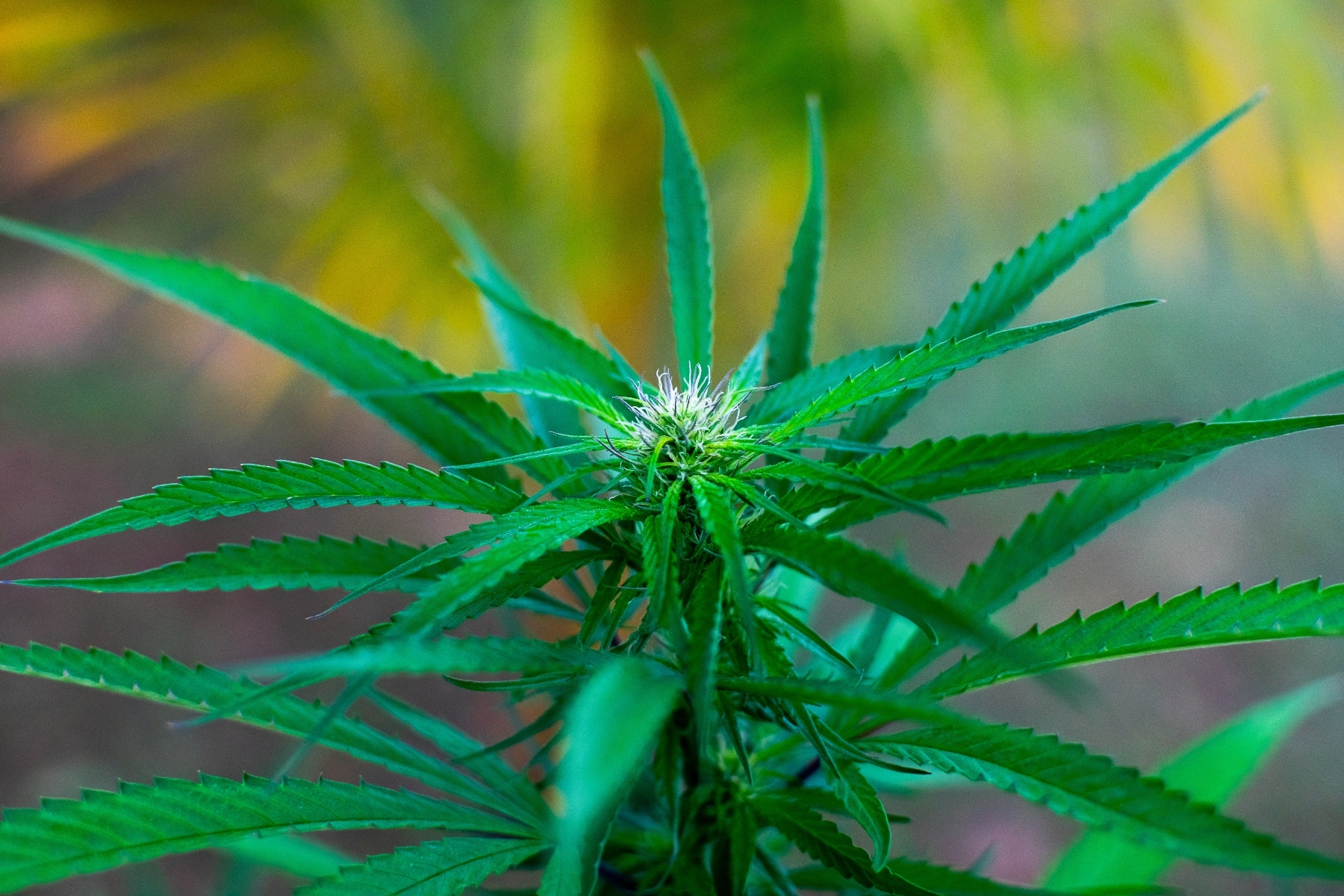
Laughing Buddha is a popular strain that appeals to a wide variety of users. Both experienced and inexperienced smokers report enjoying this strain's cerebral buzz, while medical patients also report successfully using this strain to address both physical and mental conditions. Moreover, a large body of growers cultivate this strain at home and treasure it for its vigour and quality harvests.
Laughing Buddha Cannabis Strain: FAQ
Q: How strong is Laughing Buddha?
A: Laughing Buddha is a potent cannabis strain with around 22% and high concentrations of terpenes.
Q: Is Laughing Buddha sativa or indica?
A: Laughing Buddha is an 80% sativa-dominant cannabis hybrid.
Q: How long does Laughing Buddha's high last?
A: Laughing Buddha produces a potent, euphoric high that can last several hours.
Grow your own Laughing Buddha
- Grow difficulty
- Medium
- Flowering type
- Photoperiod
- Flowering time
- 10-11 weeks
- Harvest time (outdoor)
- End of October
- Yield (indoor)
- 600g/m²
- Yield (outdoor)
- Large
- Height (indoor)
- 110cm
- Height (outdoor)
- Medium
Lineage of Laughing Buddha
Fold Unfold-
Laughing Buddha
- Jamaican
- Landrace from Thailand




